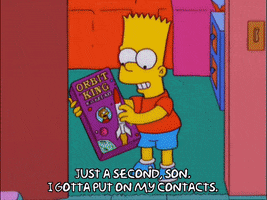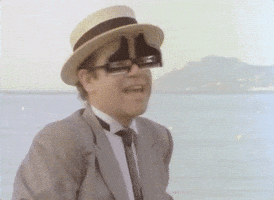What You Should Know About Wearing Contact Lenses
If you’ve been wearing glasses for a while, you may want to consider contact lenses. Contacts can be a convenient alternative to traditional glasses.

But there are a wide variety of contact lenses to choose from. Selecting the right type for you can be overwhelming.
If you’re considering contacts, there are a few things you should know before trying them for the first time. If you already wear contacts, you may like to learn more about proper care and the different types of contacts lenses available.
Keep reading to learn what you should know about wearing contact lenses.
Types of Contact Lenses
When contacts first became popular, they were mainly rigid, hard lenses that broke easily. Nowadays, though, contacts are more durable and comfortable to wear.
There is a wide variety of contact lenses, but most fall into one of three categories. The most common types of contact lenses include:
Soft Lenses
Soft lens contacts are the most common type of contact lenses. They’re soft and flexible and can correct any refractive error.
Whether you’re nearsighted, farsighted, or have astigmatism, you can use soft contacts. Some can even correct presbyopia, also called age-related farsightedness.
Rigid Gas-Permeable Lenses
Rigid gas-permeable or RGP contacts are the modern hard lens. They’re stiff but still breathable.
You’re less likely to develop dry eyes when wearing them because oxygen can still get to your eye. They can last years, although they need daily cleaning.
Others
 Some contacts aren’t soft or rigid gas permeable. These are hybrid lenses, which are a combination of soft and RGP lenses.
Some contacts aren’t soft or rigid gas permeable. These are hybrid lenses, which are a combination of soft and RGP lenses.
Some contact lenses are larger to accommodate bigger eyes. Others have special coatings or change the shape of your eye over time.
Other lenses can do specific things to your eyes. Your eye doctor may elect to use them to achieve a particular vision goal for you.
Specialty lenses are usually more expensive. Because of the cost, you may prefer to stick to regular soft or rigid-gas permeable lenses. But if you don’t have a standard refractive error, the benefits of these lenses could be well worth the cost.
Length of Wear
Soft lenses especially come in varying types that you can wear for different lengths of time. You can wear some overnight and continuously for 30 days.
Others are for daily use, and you cannot wear them overnight. You can wear rigid gas permeable lenses for an extended period, as long as you clean them every day.
RGP lenses can handle continuous use, with cleaning, for up to thirty days and can last for two to three years. There are also different specialty lenses that you can wear for varying lengths of time.
Choosing the Right Contacts for You

There are advantages to each kind of contact lens, but there can also be drawbacks. For example, extended-wear soft contacts can cause buildup under the lens that can lead to infection.
They may not be the best choice for you if you’re prone to infection. If you struggle with chronic dry eye, a rigid gas permeable lens might be a good choice.
With so many different contacts out there, it can be hard to figure out what’s best for you. That’s why working with your eye doctor when selecting the proper lens is vital.
They can recommend specific types of contacts for your prescription and lifestyle. They’ll also fit your contacts for size.
The size of your contact lens is as unique as your prescription and eye itself. Sometimes, getting a contact fitting may rule out certain kinds of contacts based on the size.
But chances are, your eye doctor will be able to help you find and fit into the best contact lenses for you.
Contact Care
Contacts do require a little more care than glasses. For one thing, you need to make sure they’re kept clean because they sit on top of your cornea.
Always wash your hands before putting contacts in or taking them out. Also, be sure to use plenty of contact solution, so they don’t dry out your eyes.
You should never wear contacts longer than recommended. Unless you have contacts meant for overnight use, you should never leave them in overnight.
Improper contact lens care can lead to infection and other serious eye issues. Make sure you know how to keep your contacts clean and follow all your eye doctor’s instructions.
Contact Alternatives
If the idea of wearing contact lenses is not appealing, then you may have to use glasses. Contacts are an alternative to glasses, but they are not for everyone.

If you would prefer to wear glasses over contacts, your eye doctor can help you find the right pair for you. The process to find the right glasses for you is similar to finding the best contact lenses.
Your eye doctor will determine your prescription and make your lenses based on that. Then, they can help you find a pair of frames or two that compliment your face.
There are specific guidelines for the best type of frames for the varying face shapes. The technicians in our optical shop will help you find the frames that fit your face!
With payment plans or insurance coverage, contacts or glasses can be pretty affordable. Ask your eye doctor about payment options if covering the cost is a concern for you.
Price should never influence you being able to see or not. Getting contact lenses or glasses, whichever you prefer, should be your main priority.
Are you ready to switch to contact lenses? Or do you need a new pair of glasses?
Schedule an appointment at Complete EyeCare West in Columbus, OH, today! We’ll give you a comprehensive eye exam to ensure your eyes are healthy and find your prescription.
Then you can choose the type of contacts or glasses that are best for you!







